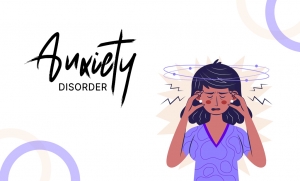In mental health care, holistic psychiatrists are leading a transformative shift towards a more comprehensive and integrated approach to wellness. By addressing the interconnectedness of mind, body, and spirit, these professionals aim to empower individuals to take control of their mental health and well-being holistically and sustainably. Let's delve deeper into how holistic psychiatrists are redefining mental health care and empowering wellness for their patients.
Understanding Holistic Psychiatry
Holistic psychiatry is a branch of mental health care that emphasizes the importance of treating the whole person rather than just the symptoms of mental illness. Holistic psychiatrists recognize that a wide range of factors, including physical health, lifestyle choices, social relationships, and spiritual beliefs, can influence mental health issues. By taking a multidimensional approach to assessment and treatment, these professionals seek to address the root causes of mental health concerns and promote healing on all levels - physical, emotional, mental, and spiritual.
The Role of Holistic Psychiatrists in Empowering Wellness
Holistic psychiatrists play a crucial role in empowering individuals to take an active role in their healing journey. By fostering a collaborative and patient-centered approach to care, these professionals work closely with their clients to develop personalized treatment plans that address not only the symptoms of mental illness but also the underlying contributing factors.
Through a combination of traditional psychiatric treatments, such as medication and complementary approaches, such as nutrition, exercise, mindfulness, and alternative, holistic psychiatrists empower individuals to make informed decisions about their health and well-being.
Redefining Mental Health Care Practices
Holistic psychiatrists are redefining traditional mental health care practices by integrating a wide range of modalities and approaches into their treatment plans. In addition to conventional psychiatric interventions, such as medication management, these professionals may also incorporate mind-body practices like yoga, meditation, acupuncture, or energy healing techniques to promote relaxation, stress reduction, and emotional balance. By offering a more diverse and personalized toolkit of holistic psychiatrists can cater to each client's individual needs and preferences, fostering a greater sense of empowerment and engagement in the healing process.
Promoting Preventive Care and Wellness
One of the critical aspects of holistic psychiatry is its focus on preventive care and wellness promotion. Rather than waiting for mental health issues to arise, holistic psychiatrists work proactively with their clients to identify risk factors, strengthen coping skills, and enhance resilience against stress and adversity.
By emphasizing self-care practices, healthy lifestyle habits, and early intervention strategies, these professionals help individuals build a solid foundation for mental and emotional well-being, reducing the likelihood of developing more serious mental health concerns in the future.
Personalized Treatment Plans: Tailoring Care to Individual Needs
One of the core tenets of holistic psychiatry is the emphasis on personalized treatment plans. Holistic psychiatrists take the time to understand each patient's unique history, lifestyle, and preferences, crafting a tailored approach to address their specific mental health concerns. This individualized care promotes a deeper understanding of the person as a whole, fostering a relationship built on trust and collaboration.
Incorporating Lifestyle and Nutrition: The Mind-Body Connection
Holistic psychiatrists recognize the profound connection between the mind and body. By incorporating lifestyle and nutrition into treatment plans, these practitioners acknowledge the impact of physical health on mental well-being. Exercise, sleep, and nutrition play integral roles in influencing mood and cognitive function, and holistic psychiatrists work to optimize these factors for holistic mental health.
Mindfulness and Meditation: Cultivating Mental Resilience
Mindfulness and meditation are central components of holistic psychiatry. These practices are not only used as coping mechanisms but are integrated into treatment plans to cultivate mental resilience. By teaching patients to be present in the moment and manage stress through mindfulness techniques, holistic psychiatrists empower individuals to build a foundation for lasting mental well-being.
Conclusion:
In conclusion, holistic psychiatrists are playing a crucial role in redefining mental health care by embracing a holistic approach that values the interconnectedness of mind, body, and spirit. By empowering individuals to take charge of their wellness through personalized, integrative, and preventive strategies, these professionals are reshaping the landscape of mental health care and paving the way for a more holistic and empowering approach to healing. As we continue to recognize the importance of holistic practices in mental health care, let us embrace the principles of wholeness, balance, and empowerment to foster greater well-being and resilience for all.






